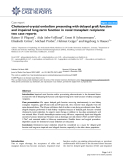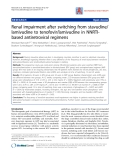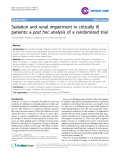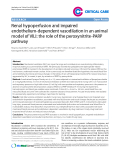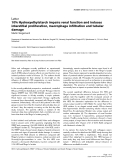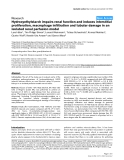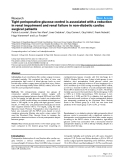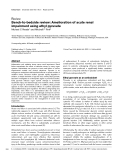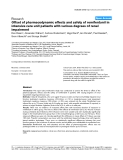
Renal impairment
-
Tuyển tập báo cáo các nghiên cứu khoa học quốc tế ngành y học dành cho các bạn tham khảo đề tài: Cholesterol-crystal embolism presenting with delayed graft function and impaired long-term function in renal transplant recipients: two case reports
 5p
5p  thulanh30
thulanh30
 19-12-2011
19-12-2011
 51
51
 3
3
 Download
Download
-
Tuyển tập các báo cáo nghiên cứu về y học được đăng trên tạp chí y học Wertheim cung cấp cho các bạn kiến thức về ngành y đề tài: Renal impairment after switching from stavudine/ lamivudine to tenofovir/lamivudine in NNRTIbased antiretroviral regimens...
 8p
8p  toshiba23
toshiba23
 18-11-2011
18-11-2011
 33
33
 4
4
 Download
Download
-
Tuyển tập các báo cáo nghiên cứu về y học được đăng trên tạp chí y học Critical Care giúp cho các bạn có thêm kiến thức về ngành y học đề tài: Sedation and renal impairment in critically ill patients: a post hoc analysis of a randomized trial...
 6p
6p  coxanh_8
coxanh_8
 05-11-2011
05-11-2011
 44
44
 2
2
 Download
Download
-
Tuyển tập các báo cáo nghiên cứu về y học được đăng trên tạp chí y học quốc tế cung cấp cho các bạn kiến thức về ngành y đề tài: Renal hypoperfusion and impaired endothelium-dependent vasodilation in an animal model of VILI: the role of the peroxynitrite-PARP pathway...
 10p
10p  coxanh_6
coxanh_6
 30-10-2011
30-10-2011
 52
52
 2
2
 Download
Download
-
Tuyển tập các báo cáo nghiên cứu về y học được đăng trên tạp chí y học Critical Care giúp cho các bạn có thêm kiến thức về ngành y học đề tài: 10% Hydroxyethylstarch impairs renal function and induces interstitial proliferation, macrophage infiltration and tubular damage...
 2p
2p  thulanh18
thulanh18
 28-10-2011
28-10-2011
 47
47
 1
1
 Download
Download
-
Tuyển tập các báo cáo nghiên cứu về y học được đăng trên tạp chí y học Critical Care giúp cho các bạn có thêm kiến thức về ngành y học đề tài: Hydroxyethylstarch impairs renal function and induces interstitial proliferation, macrophage infiltration and tubular damage in an isolated renal perfusion model...
 9p
9p  thulanh18
thulanh18
 28-10-2011
28-10-2011
 41
41
 2
2
 Download
Download
-
Tuyển tập các báo cáo nghiên cứu về y học được đăng trên tạp chí y học Critical Care giúp cho các bạn có thêm kiến thức về ngành y học đề tài:Tight perioperative glucose control is associated with a reduction in renal impairment and renal failure in non-diabetic cardiac surgical patients...
 12p
12p  coxanh_3
coxanh_3
 27-10-2011
27-10-2011
 78
78
 3
3
 Download
Download
-
Tuyển tập các báo cáo nghiên cứu về y học được đăng trên tạp chí y học Critical Care giúp cho các bạn có thêm kiến thức về ngành y học đề tài: Bench-to-bedside review: Amelioration of acute renal impairment using ethyl pyruvate...
 5p
5p  coxanh_2
coxanh_2
 24-10-2011
24-10-2011
 52
52
 4
4
 Download
Download
-
Tuyển tập các báo cáo nghiên cứu về y học được đăng trên tạp chí y học Critical Care giúp cho các bạn có thêm kiến thức về ngành y học đề tài: Offset of pharmacodynamic effects and safety of remifentanil in intensive care unit patients with various degrees of renal impairment...
 10p
10p  coxanh_2
coxanh_2
 23-10-2011
23-10-2011
 75
75
 5
5
 Download
Download
CHỦ ĐỀ BẠN MUỐN TÌM








